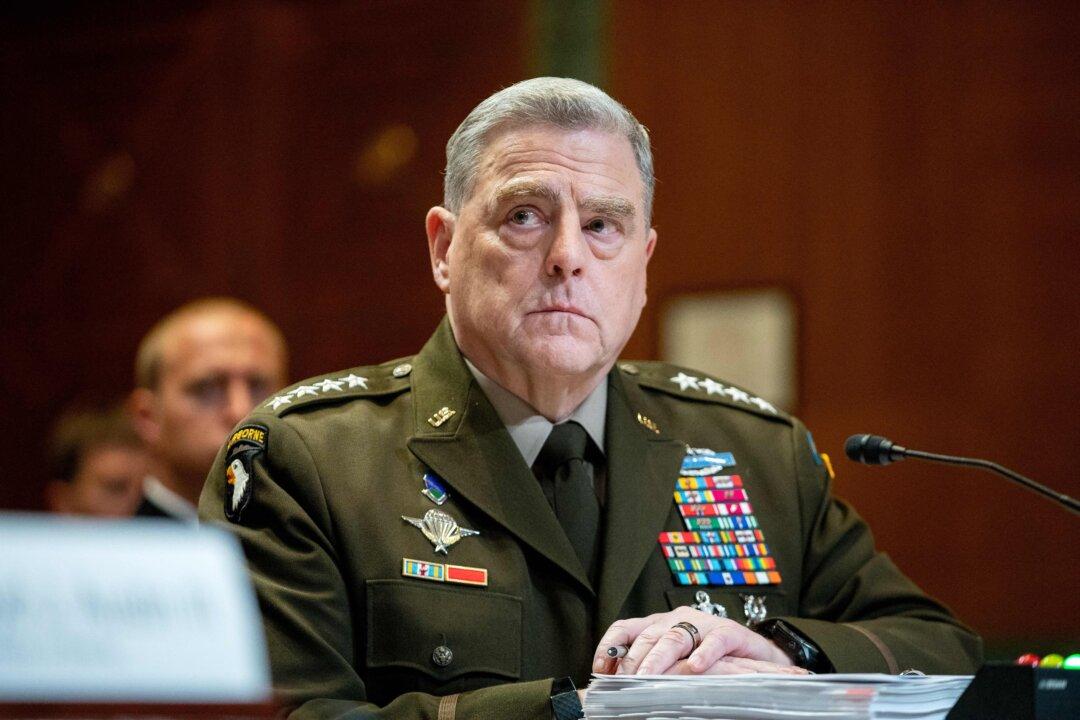China’s military has become more aggressive and dangerous over the past five years, the top U.S. general asserted on July 24.
Gen. Mark Milley, chairman of the Joint Chiefs of Staff, told reporters during a trip to Indonesia that the United States and its allies have conducted more and more intercepts of Chinese aircraft and ships in the Pacific. The number of unsafe encounters has also increased significantly, he said.





